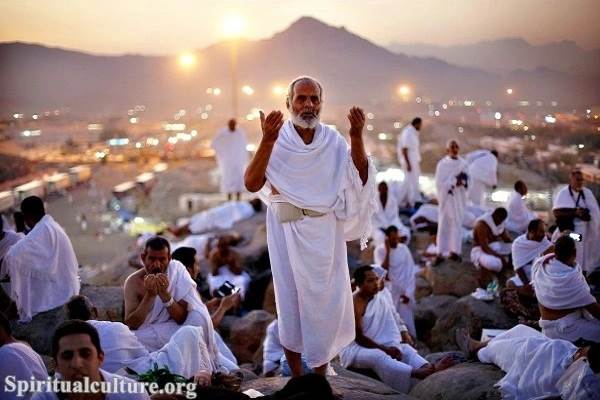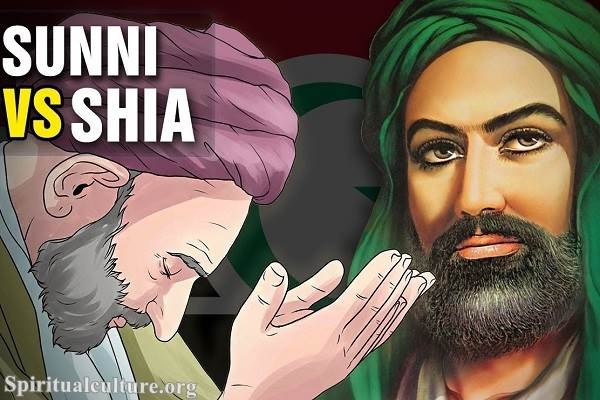In a world longing for grace and redemption, Islam offers a deeply rooted and profound understanding of divine mercy and forgiveness.
As Spiritual Culture, we invite you into a sacred reflection on how Islam conceives of God’s mercy — not as a scarce resource, but as the essence of His being. This article will explore the central role of divine compassion in Islamic theology, the practices that foster forgiveness, and how these teachings shape the spiritual lives of Muslims today. Whether you are curious, seeking, or simply yearning to understand, this journey will illuminate a powerful truth: that in Islam, rahmah — mercy — is the heartbeat of the Divine.
The Names of God: Mercy as a Divine Identity
Ar-Rahman and Ar-Rahim: The Most Merciful, the Most Compassionate
The Islamic understanding of divine mercy begins with the very names of God. Among the 99 Names of Allah, two of the most frequently invoked are:
- Ar-Rahman (الرحمن) — The Entirely Merciful
- Ar-Rahim (الرحيم) — The Especially Merciful
These names appear at the beginning of every chapter of the Qur’an (except one), framing each recitation in mercy.
Linguistic Roots
Both words stem from the Arabic root R-H-M, which also relates to the word for womb (rahm) — evoking the nurturing, sheltering, unconditional love of a mother. This is no coincidence. In Islam, God’s mercy is not abstract, but intimate and enveloping.
Qur’anic Foundations of Mercy
God’s Mercy Surpasses His Wrath
One of the most frequently cited hadiths (sayings of the Prophet Muhammad, peace be upon him) declares:
“My mercy prevails over My wrath.”
(Sahih Bukhari and Sahih Muslim)
This declaration reflects a theological cornerstone: while God is just, His mercy is more encompassing than His punishment. The Qur’an itself echoes this:
“Say, ‘O My servants who have transgressed against themselves [by sinning], do not despair of the mercy of Allah. Indeed, Allah forgives all sins.’”
(Qur’an 39:53)
Mercy is for All Creation
Islam teaches that God’s mercy is universal:
“My mercy encompasses all things.”
(Qur’an 7:156)
This includes not only humans but animals, nature, and even those who do not yet believe.
The Human Experience: Forgiveness in Practice
Tawbah: The Door of Repentance is Always Open
In Islam, repentance (Arabic: tawbah) is a sacred act of returning to God. It is not an admission of defeat, but a pathway back to wholeness. The process is simple yet deeply sincere:
- Recognize the wrongdoing
- Feel genuine remorse
- Cease the wrongful action
- Resolve never to return to it
- If others were harmed, make amends
This act is not mediated by clergy. It is between the soul and its Creator.
“And whoever does a wrong or wrongs themselves but then seeks forgiveness of Allah will find Allah Forgiving and Merciful.”
(Qur’an 4:110)
Daily Mercy in Prayer
Muslims pray five times a day, and each prayer begins with “Bismillah ar-Rahman ar-Rahim” — In the name of God, the Most Merciful, the Most Compassionate. This constant invocation is not ritual repetition but spiritual realignment with divine mercy.
Mercy in Community and Social Life
Forgiveness as a Spiritual Virtue
In Islam, to forgive others is an act that reflects God’s own mercy:
“Let them pardon and overlook. Would you not like that Allah should forgive you?”
(Qur’an 24:22)
Muslims are taught that holding onto grudges or seeking revenge blocks the heart’s openness to divine grace. Forgiveness, then, is not weakness, but power rooted in faith.
Legal and Ethical Balance
While Islamic law (Shari’ah) includes justice and consequences, it also provides space for mercy. For example, victims of crimes are encouraged — though not obligated — to forgive the wrongdoer, which can lead to a reduction or cancellation of punishment.
The Prophetic Example: Mercy in Action
The Prophet Muhammad (pbuh) as Mercy to the Worlds
The Qur’an declares:
“And We have not sent you, [O Muhammad], except as a mercy to the worlds.”
(Qur’an 21:107)
Prophet Muhammad’s life was a living embodiment of divine mercy. His actions reflect unprecedented compassion, even toward enemies.
Examples of the Prophet’s Mercy:
- Ta’if Incident: After being stoned by the people of Ta’if, he prayed for their guidance, not their destruction.
- Conquest of Mecca: He forgave his former persecutors, declaring, “No blame will there be upon you today. Go, for you are free.”
These stories resonate as eternal lessons in humility, forgiveness, and divine reflection.
Divine Justice and Mercy: Not Opposites, but Partners
Some may wonder: If God is so merciful, why is there punishment at all?
Islam addresses this with clarity: justice is not the opposite of mercy — it is an expression of it. Divine justice ensures accountability, while mercy offers redemption.
The Balance in the Qur’an
The Qur’an speaks often of:
- “Ghafur” — The Most Forgiving
- “Halim” — The Most Forbearing
- “Adl” — The Most Just
These qualities are not in tension. Instead, they reveal the depth of divine wisdom — that mercy and justice together lead to healing and harmony.
Spiritual Reflections: Mercy as a Path to Inner Peace
Letting Go of Despair
Many struggle with guilt or the belief that they are “too far gone.” Islam answers this with hope:
“And who despairs of the mercy of his Lord except for those astray?”
(Qur’an 15:56)
The message is clear: no sin is beyond God’s forgiveness, and no soul is abandoned.
The Heart that Forgives, Heals
When a Muslim forgives — even when hurt — they are participating in the Divine attribute. It’s not easy, but it is liberating. Forgiveness is not only a gift to others, but a release for the self.
Mercy Toward All Living Things
The Prophet Muhammad’s teachings extended mercy beyond humans:
- Animals: “Whoever is kind to the creatures of God is kind to himself.” (Hadith)
- Nature: Islam encourages environmental stewardship as an act of gratitude toward the Creator.
Even acts of small compassion, such as removing harm from a path or feeding a stray animal, are praised as meritorious deeds.
Reflect and Reimagine: What This Means for You
Mercy and forgiveness are not peripheral in Islam — they are its pulse. They are not conditional, transactional, or reserved for the worthy. They are gifts from the Divine, waiting to be accepted and mirrored.
Whether Muslim or not, we all encounter guilt, regret, and the longing to be made whole again. Islam invites us into a worldview where God is always near, always listening, always ready to forgive — if only we turn to Him.
As Spiritual Culture, we encourage you to:
- Reflect on the mercy you’ve received
- Offer forgiveness to others as an act of divine alignment
- Return to hope, no matter how far you feel
In a world often hardened by judgment, let the Islamic vision of mercy be a river that softens your heart and waters your soul.
“Indeed, the mercy of Allah is near to the doers of good.”
(Qur’an 7:56)
May that nearness draw us all a little closer — to one another, and to the Divine.



